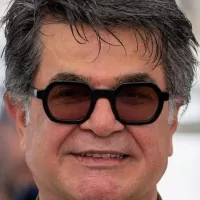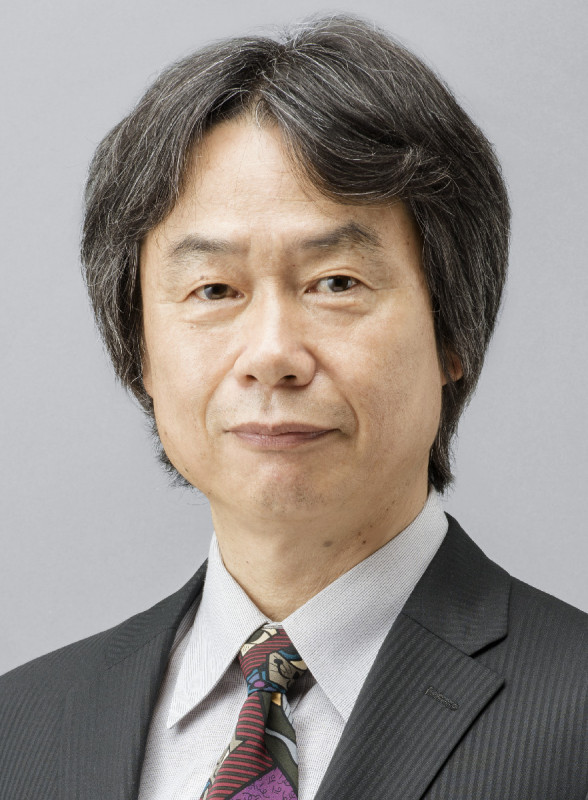Shigeru Miyamoto is a highly influential Japanese video game designer, producer, and director at Nintendo. As an executive since 2002, he is celebrated as one of the most accomplished designers in video games. Miyamoto is the creator of iconic and best-selling franchises like Mario, The Legend of Zelda, Donkey Kong, Star Fox and Pikmin. Games featuring his creations have sold over 1 billion copies, solidifying his legacy in the gaming industry.
1933: Influence of King Kong Film
The 1933 film King Kong was an influence on Shigeru Miyamoto's work.
November 16, 1952: Shigeru Miyamoto's Birth
On November 16, 1952, Shigeru Miyamoto, the influential video game designer, producer, and director at Nintendo, was born.
1977: Joining Nintendo
In 1977, Shigeru Miyamoto joined Nintendo after impressing Hiroshi Yamauchi with his toys.
1977: Hired as Apprentice at Nintendo
In 1977, Shigeru Miyamoto was hired as an apprentice in the planning department at Nintendo.
1978: Inspiration from Space Invaders
In 1978, Shigeru Miyamoto was inspired to enter the video game industry by the arcade hit Space Invaders.
1981: Donkey Kong release
In 1981, Miyamoto's Donkey Kong was released, becoming a major arcade hit and highly influential, leading to the "platform" genre. Computer and Video Games called Donkey Kong "the most momentous" release of the year. The game innovatively combined storytelling and cutscenes to advance a story.
1981: Designing Donkey Kong
In 1981, Shigeru Miyamoto was tasked with designing a new arcade game, which led to the creation of Donkey Kong.
1982: Donkey Kong Jr.
In 1982, Miyamoto worked on sequels such as Donkey Kong Jr..
January 1983: Arcade Awards for Donkey Kong
In January 1983, Donkey Kong received the Best Single-player video game award and the Certificate of Merit at the 1982 Arcade Awards.
1983: Rescuing the video game industry after the North American video game crash
In 1983, Super Mario Bros. was released, revitalizing the video game industry after the North American video game crash. The game popularized the side-scrolling genre and set the standard for future video games.
1984: Involvement in Devil World and Excitebike
In 1984, Shigeru Miyamoto was involved in the creation of Devil World and the side-scrolling racing game Excitebike.
1985: Development of Super Mario Bros.
In 1985, Shigeru Miyamoto developed Super Mario Bros., taking a linear approach with gameplay focused on running, jumping, and defeating enemies.
1992: Rejection of RPG Classification for Zelda
In a 1992 interview, Miyamoto declined to classify the Zelda series as an RPG, instead calling it "a real-time adventure." He expressed a lack of interest in games determined by stats and numbers, preferring to preserve a 'live' feeling.
1992: Miyamoto's Design Philosophy
In a 1992 interview, Miyamoto states that game feel and quality are not determined by the story, but by the controls, the sound, and the rhythm and pacing.
1995: Listed among the most important people in the game industry
In 1995, Next Generation listed Miyamoto in their "75 Most Important People in the Games Industry", recognizing him as the most successful game developer in history with a unique understanding of what gamers want.
1995: Maximum Article on Miyamoto's Influence
In 1995, an article in Maximum stated that Miyamoto's name carried far more weight in gaming circles than Steven Spielberg's could ever sustain, highlighting his immense influence in the industry.
1996: Creation of Pokémon Red and Blue
In 1996, Shigeru Miyamoto played an important role in the creation of the influential games Pokémon Red and Blue.
1996: Original Quote at GDC
In 1996, Siobhan Beeman, who worked on the Wing Commander franchise, first said the phrase at GDC, or something close to it, "a game’s only late until it ships, but it sucks forever."
1998: Induction into Academy of Interactive Arts and Sciences' Hall of Fame
In 1998, Miyamoto was the first person inducted into the Academy of Interactive Arts and Sciences' Hall of Fame, marking a significant recognition of his contributions to the industry.
1999: Sales of Miyamoto's games reach 250 million units
As of 1999, Miyamoto's games had collectively sold 250 million units, generating billions of dollars in revenue.
1999: Preference for interactive fun over movie-like games
In 1999, Miyamoto expressed his preference for interactively fun games over elaborate film sequences, stating he would "never make movie-like games." He emphasized the importance of a rapid and malleable development process with small teams, focusing on interactive elements rather than pre-rendered images.
2002: Creation of Metroid Prime
In 2002, Shigeru Miyamoto played an important role in the creation of the influential game Metroid Prime.
2002: Appointment as Representative Director
In 2002, Shigeru Miyamoto was appointed as one of Nintendo's representative directors as an executive.
May 21, 2003: Super Mario 64 Sales
As of May 21, 2003, Super Mario 64 had sold eleven million copies.
2003: Expression of dislike for the RPG genre
In 2003, Miyamoto described his "fundamental dislike" of the RPG genre, feeling that players are initially restricted but gradually gain power, leading to a feeling of happiness, but not necessarily fundamental fun. He contrasted this with games like Mario, where skill is crucial for progress.
November 28, 2006: Featured in TIME Asia's '60 Years of Asian Heroes'
On November 28, 2006, Miyamoto was featured in TIME Asia's "60 Years of Asian Heroes."
2006: Made a Chevalier of the French Ordre des Arts et des Lettres
In 2006, Miyamoto was made a Chevalier (knight) of the French Ordre des Arts et des Lettres by the French Minister of Culture Renaud Donnedieu de Vabres.
March 7, 2007: Received Lifetime Achievement Award at Game Developers Choice Awards
On March 7, 2007, Miyamoto received the Lifetime Achievement Award at the Game Developers Choice Awards for his career contributions, including Super Mario Bros. and The Legend of Zelda.
March 31, 2007: Twilight Princess Sales on GameCube
As of March 31, 2007, The Legend of Zelda: Twilight Princess had sold 1.32 million copies on the GameCube.
June 2007: Super Mario 64 Popularity on Wii's Virtual Console
By June 2007, Super Mario 64 had become the second most popular game on Wii's Virtual Console, following Super Mario Bros.
September 25, 2007: Super Mario 64 Ranked Seventh Best-Selling Game in US
As of September 25, 2007, Super Mario 64 was the seventh best-selling video game in the United States with six million copies sold.
March 1, 2008: Twilight Princess Sales on Wii
As of March 1, 2008, The Legend of Zelda: Twilight Princess had sold 4.52 million copies on the Wii.
2008: Topped Time Magazine's 100 Most Influential People
In 2008, Miyamoto topped Time Magazine's 100 Most Influential People of the Year list with 1,766,424 votes.
2009: Super Mario Bros. ranked second on Game Informer's list of top games
In 2009, Game Informer ranked Super Mario Bros. second on its list of "The Top 200 Games of All Time", highlighting its brilliant design and fun gameplay.
2009: The Legend of Zelda considered the greatest game of all time by Game Informer
In 2009, Game Informer ranked The Legend of Zelda as the "greatest game of all time", recognizing its early example of open world, nonlinear gameplay, and its introduction of battery backup saving.
March 19, 2010: Made a Fellow of BAFTA
On March 19, 2010, Miyamoto was made a Fellow of BAFTA at the British Academy Video Games Awards.
2010: Family information in 2010
In 2010, Miyamoto's son was 25 and working at an advertising agency, and his daughter was 23 and studying zoology.
2010: Release of Super Mario Galaxy 2
In 2010, Shigeru Miyamoto produced Super Mario Galaxy 2 for Wii.
2011: Release of The Legend of Zelda: Skyward Sword
In 2011, The Legend of Zelda: Skyward Sword was released for the Wii.
2012: Awarded the Prince of Asturias Award
In 2012, Miyamoto was the first interactive creator to be awarded the Prince of Asturias Award in the category of Communications and Humanities.
July 2015: Appointment as Acting Representative Director
Following the death of Nintendo president Satoru Iwata in July 2015, Miyamoto was appointed as an acting Representative Director, alongside Genyo Takeda.
July 2015: Appointment as Acting President of Nintendo
Following the death of Nintendo president Satoru Iwata in July 2015, Shigeru Miyamoto became acting president alongside Genyo Takeda.
September 2015: Appointment as Creative Fellow
In September 2015, Shigeru Miyamoto was appointed the position of "Creative Fellow" at Nintendo, providing expert advice to Tatsumi Kimishima.
December 2016: Showcasing Hobby on The Tonight Show
In December 2016, Miyamoto showcased his hobby of guessing dimensions on The Tonight Show Starring Jimmy Fallon. During the same show, he also performed the Super Mario Bros. theme on guitar with The Roots.
2016: Gardening with wife and influence on games
In a 2016 interview, Miyamoto mentioned that when he had his own family he took up gardening with his wife, which influenced other games that he was making at the time.
2018: Producer on The Super Mario Bros. Movie
In 2018, it was announced that Shigeru Miyamoto would be working as a producer on The Super Mario Bros. Movie.
2019: Awarded Japan's Person of Cultural Merit
In 2019, Miyamoto was awarded Japan's Person of Cultural Merit for his contributions to the video game industry, making him the first person in the industry to receive this honor.
December 2020: Tour of Super Nintendo World
In December 2020, Shigeru Miyamoto hosted a Nintendo Direct, giving a tour of parts of Super Nintendo World.
July 14, 2023: The Super Mario Bros. Movie Grosses $1.347 Billion Worldwide
As of July 14, 2023, The Super Mario Bros. Movie grossed $1.347 billion worldwide, becoming the third-highest-grossing animated movie of all time and the highest-grossing film based on a video game.
2023: Misconstrued Quote
In 2023, fans discovered that the popular quote, "a delayed game is eventually good, but a rushed game is forever bad," often attributed to Miyamoto, originated from Siobhan Beeman in 1996. It had been misconstrued and circulated online for many years as Miyamoto's quote.
2024: Comparison to Sonic the Hedgehog 3 Gross
In 2024, it was noted that The Super Mario Bros. Movie, as the highest-grossing film based on a video game, grossed $900 million more than Sonic the Hedgehog 3.
April 2025: Mario Kart 8 Deluxe is the best selling game on the Nintendo Switch
As of April 2025, Mario Kart 8 Deluxe remains the best selling game on the Nintendo Switch.
Mentioned in this timeline

Nintendo is a Japanese multinational video game company based in...
The Nintendo Switch is a video game console developed by...
The United States of America is a federal republic located...

Steven Spielberg is a highly influential and successful American filmmaker...

Radar is a radiodetermination system using radio waves to detect...

Sonic the Hedgehog is a media franchise created by Yuji...
Trending

56 minutes ago Warriors face play-in, Curry's injury raises concerns, Kerr lowers expectations, Moody's role?

56 minutes ago Stephen A. Smith criticizes Draymond Green's comments on Nico Harrison as unfair.

56 minutes ago Kris Dunn Recovered From Injury, Briefly Exited Game After Elbow Contact

57 minutes ago Al Horford's Role Shifts: Back to Starting Lineup, Then Bench, Mindset Revealed.

2 hours ago Jafar Panahi faces restrictions, continues filmmaking despite adversity and imprisonment in Iran.

2 hours ago Joe Rogan Interviews RFK Jr. on Trump's ICE Raids and US Taxpayer Losses.
Popular

Jesse Jackson is an American civil rights activist politician and...

Hillary Diane Rodham Clinton is a prominent American politician lawyer...

Jim Carrey is a Canadian-American actor and comedian celebrated for...

XXXTentacion born Jahseh Dwayne Ricardo Onfroy was a controversial yet...

Kashyap Pramod Patel is an American lawyer who became the...

Michael Joseph Jackson the King of Pop was a highly...
